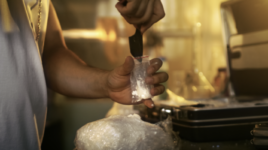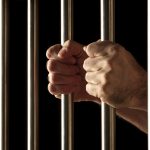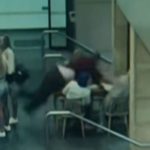The Law, Defences and Penalties for Drug Premises Offences in New South Wales

Along with New South Wales drug offences against the unlawful use, possession and supply of prohibited drugs and plants (including heroin, methamphetamine, cocaine and cannabis), there are also unique offences which apply to illicit drug premises.
Here’s what landlords and other property owners need to know.
What are drug premises?
Drug premises offences in New South Wales are contained in the Drug Misuse and Trafficking Act 1985.
Section 36TA of the Act defines ‘drug premises’ as any premises that are used for:
- the unlawful supply or manufacture of prohibited drugs; and/or
- the unlawful commercial cultivation of prohibited plants by enhanced indoor means.
Section 36U makes clear the term ‘prohibited drugs’ does not include does not include cannabis leaf, cannabis oil or cannabis resin.
However, the term ‘commercial cultivation’ refers to the cultivation of prohibited plants (including cannabis) which are:
- Over a commercial quantity (which for cannabis plants is 100 kilograms of dried leaf); or
- Over a small quantity (which for cannabis plants is 30 grams of dried cannabis leaf) where the plants or their products are intended by any person for sale.
The offence of entering, or being on, drug premises
Section 36X of the Act outlines the offence of entering, or being on, drug premise. This offence carries a maximum penalty of:
- A fine of $5,500 or imprisonment for 12 months (or both) for a first offence; or
- A fine of $55,000 or imprisonment for 5 years (or both) for a second or subsequent offence.
A defence exists under this section if a person satisfies the court that he or she was on, or was entering or leaving, the drug premises for a lawful purpose or with a lawful excuse.
The offence of allowing use of premises as drug premises
Section 36Y(1) of the Act outlines an offence if a person, who is an owner or occupier of any premises, knowingly allows the premises to be used as drug premises. This offence carries a maximum penalty of:
- A fine of $5,500 or imprisonment for 12 months (or both) for a first offence; or
- A fine of $55,000 or imprisonment for 5 years (or both) for a second or subsequent offence.
Section 36Y(2) of the Act also outlines an offence if an owner or occupier of a premises knowingly allows the premises to be used as drug premises, and knows that a child has access to the premises and, as a consequence of that access, the child is exposed to:
- a prohibited drug or prohibited plant, or
- a drug supply process, or
- any equipment capable of being used to administer a prohibited drug.
This offence carries a maximum penalty of:
- A fine of $6,600 or imprisonment for 14 months (or both) for a first offence; or
- A fine of $66,000 or imprisonment for 6 years (or both) for a second or subsequent offence.
It is a defence to this offence if the defendant establishes that the exposure of the child to a prohibited drug or prohibited plant, to a drug supply process, or to equipment capable of being used to administer a prohibited drug, did not endanger the health or safety of the child.
For the offences above, section 36ZB notes that a corporation will be said to have ‘known’ premises were being used as drug premises if there is evidence that an officer, employee or agent of a corporation (while acting in his or her capacity as such) had, at any particular time sufficient knowledge.
The offence of organising drug premises
Section 36Z(1) of the Act outlines an offence if a person organises or conducts, or assists in organising or conducting, any drug premises. This offence carries a maximum penalty of:
- A fine of $5,500 or imprisonment for 12 months (or both) for a first offence; or
- A fine of $55,000 or imprisonment for 5 years (or both) for a second or subsequent offence.
Section 36Z(2) of the Act also outlines an offence if a person organises or conducts, or assists in organising or conducting, any drug premises, and knows that a child has access to the premises and, as a consequence of that access, the child is exposed to:
- a prohibited drug or prohibited plant, or
- a drug supply process, or
- any equipment capable of being used to administer a prohibited drug.
This offence carries a maximum penalty of:
- A fine of $6,600 or imprisonment for 14 months (or both) for a first offence; or
- A fine of $66,000 or imprisonment for 6 years (or both) for a second or subsequent offence.
Statutory defences
The Crimes Act provides that a defendant is not guilty of a drug premises offence it is established, on the balance of probabilities (meaning more likely than not) that he or she did not know, and could not reasonably be expected to have known, that the premises to which the charge relates were being organised or conducted as drug premises.
For offences involving children, an additional defence is that the the exposure of the child to a prohibited drug or prohibited plant, to a drug supply process, or to equipment capable of being used to administer a prohibited drug, did not endanger the child’s health or safety.
Evidence of drug premises
Section 36W of the Act notes that a person cannot be found guilty of an offence in relation to drug premises unless the prosecution satisfies the court beyond a reasonable doubt that at the time of the offence the premises were being used for:
- the unlawful supply or manufacture of any prohibited drug,
- the unlawful commercial cultivation by enhanced indoor means of any prohibited plant.
Types of evidence that can indicate a premises is being used as a drug premises include:
- evidence that a police officer authorised by law to enter the premises was wilfully prevented from, or obstructed or delayed in, entering or re-entering those premises or any part of those premises;
- evidence of the external or internal construction of the premises, including any external or internal door of, or means of access to, those premises that is found to be likely to have been fitted with a bolt, bar, chain, or any means or device for the purpose of preventing, delaying or obstructing the entry or re-entry into those premises of such a police officer or any other person, or for giving an alarm in case of such entry or re-entry;
- evidence of a person acting as a lookout to warn persons on the premises of the approach of police officers or other persons;
- evidence that there was found on those premises, or in the possession of a person on those premises, any syringe or other means or device used in the supply, manufacture or use of a prohibited drug;
- evidence that there was found on the premises, or in the possession of a person on the premises, a firearm or prohibited weapon the possession of which is unlawful;
- evidence that there was found on those premises any documents or other records, including any computer records, that appear to have been kept or used in connection with the unlawful supply or manufacture of a prohibited drug;
- evidence that there was found on the premises any large amount of money that is not accounted for by the owner or occupier of the premises;
- evidence that there were found on those premises persons who appeared to be affected by a prohibited drug;
- evidence that there was found on those premises equipment such as electric lights of 250 watts or higher, fluorescent lights that combine the red and blue part of the light spectrum, light units comprising high intensity discharge lamps, ballasts, lamp mounts and reflectors (also called ballast boxes), or growing chambers with spray arm manifolds, hydro-controls and digital timers;
- evidence that there was found on those premises, or in the possession of a person on the premises, documents or literature concerned with hydroponic or other enhanced indoor cultivation methods or with cannabis cultivation or both;
- evidence that there was found on those premises, or in the possession of a person on the premises, cannabis seeds, cut cannabis leaf, cannabis plants or plant clones,
- evidence that there was found on those premises, or in the possession of a person on the premises, minerals, chemicals or nutrients, or their packaging, typically used in enhanced indoor cultivation of cannabis plants;
- evidence that there was abnormally high or low electricity consumption for those premises in relation to other premises of that type not used for such cultivation;
- evidence of an apparently unauthorised connection to, or bypass of, the electricity supply to those premises;
- evidence that there was found on those premises blacked out or boarded up windows or condensation on windows;
- evidence that there was found on those premises air vents, fan systems or exhaust fans in unusual places or in unusual numbers;
- evidence that generators were continuously running on those premises;
- evidence that security devices (such as security cameras) have been installed on those premises;
- evidence that draft excluders have been fitted to any external doors or those premises;
- evidence that there was found on those premises any documents or other records, including any computer records, that appear to have been kept or used in connection with the unlawful cultivation by enhanced indoor means of a prohibited plant; evidence that there was found on those premises any large amount of money that is not accounted for by the owner or occupier of those premises;
- evidence that there were found on those premises persons who appeared to be affected by a prohibited drug manufactured from the prohibited plant concerned.
General legal defences
In addition to the statutory defences, which are those that apply to drug premises offences only, a number of general legal defences may also apply, depending on the circumstances of the case.
These defences include duress, necessity and self-defence.
In the event a person is able to raise evidence of a general legal defence, the onus then shifts to the prosecution who will be required to prove beyond a reasonable doubt that the defence does not apply.
A person is entitled to an acquittal (a not guilty verdict) if the prosecution is unable to do this.
Going to court for a drug-related offence?
If you have been charged with a drug offence, call Sydney Criminal Lawyers anytime on 9261 8881 to arrange a free first conference during which one of our experienced criminal defence lawyers will advise you of your options and the best way forward, and fight for the optimal outcome.
Receive all of our articles weekly
Related Articles
RELATED LEGISLATION
- Section 36X Drug Misuse and Trafficking Act 1985 | Entering or Being on Drug Premises
- Section 36Y Drug Misuse and Trafficking Act 1985 | Allowing Use of Premises as Drug Premises
- Section 36Z Drug Misuse and Trafficking Act 1985 | Organising Drug Premises
- Section 36W Drug Misuse and Trafficking Act 1985 | Evidence that Premises are Drug Premises






